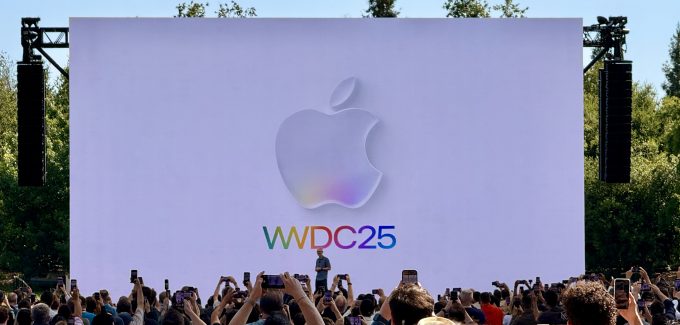Apple Inc. has long been a leader in the technology industry, consistently delivering innovative products and maintaining a loyal customer base. Its business model is unique and has proven to be highly effective, leading to significant profitability and market influence. For growing tech businesses, there is a lot to learn from Apple's approach to product development, customer experience, and branding. This article explores key aspects of Apple's business model and how other tech companies can apply these lessons to achieve sustainable growth.
1. Creating an Ecosystem, Not Just Products
One of Apple's strongest strategies is its ecosystem. Apple doesn't just sell products; it sells an interconnected environment where devices and services work seamlessly together. From the iPhone, iPad, and Mac to Apple Watch, Apple TV, and AirPods, Apple products are designed to integrate and provide a cohesive user experience. This ecosystem approach makes it easy for customers to stay within the Apple brand, as all their devices and services are interconnected.
Lesson for Growing Tech Businesses:
Tech companies should consider building ecosystems rather than standalone products. This can be achieved by creating multiple products or services that complement each other and enhance the overall customer experience. For example, a software company could develop a suite of products that work together seamlessly, such as project management software with built-in communication tools and analytics. Many tech startups also rely on startup accountants to manage their finances efficiently, helping them budget for ongoing product development and expansion.
2. Prioritizing Customer Experience and Usability
Apple's focus on customer experience is legendary. Every aspect of Apple products, from their design to their packaging, reflects a deep understanding of the user experience. Apple's devices are known for their intuitive interfaces, sleek designs, and reliable performance. Apple has invested significantly in research and development to ensure that its products are easy to use and provide real value to customers.
Lesson for Growing Tech Businesses:
Prioritising customer experience and usability is crucial. Instead of adding features for the sake of complexity, tech companies should focus on the user experience by simplifying processes, improving design, and making their products more accessible. By testing products with actual users and iterating based on feedback, tech companies can create solutions that people love to use. This focus on usability not only builds customer loyalty but also differentiates a brand in a crowded market.
3. Branding and Emotional Connection
Apple's brand is one of its most valuable assets. The company has created an emotional connection with its customers by positioning itself as an aspirational brand that values innovation, creativity, and quality. Apple has carefully crafted a brand image that resonates with its target audience, and it uses marketing to reinforce these values consistently. Apple's marketing doesn't just highlight the technical specifications of its products; it tells a story about how these products can enhance customers' lives.
Lesson for Growing Tech Businesses:
Building a strong brand with an emotional connection is essential for long-term success. Growing tech companies should focus on defining their brand values and messaging and should strive to create a brand story that resonates with their target audience. Additionally, by utilising professional accounting services, tech businesses can ensure their financial health is aligned with their branding and customer loyalty strategies. Accounting services can provide valuable insights, ensuring financial decisions support brand growth.
4. Innovative Product Development and Continuous Improvement
Apple is known for its innovative approach to product development. While Apple wasn't the first to invent smartphones or tablets, it redefined these product categories by focusing on design and functionality. Apple invests heavily in research and development, consistently pushing the envelope with new features, materials, and designs. It also engages in continuous improvement, regularly updating its software and hardware to keep up with changing technology and customer needs.
Lesson for Growing Tech Businesses:
Innovation and continuous improvement are key to staying competitive in the tech industry. Tech companies should invest in research and development to explore new technologies and identify opportunities for innovation. Additionally, businesses should not settle for a one-time success; instead, they should continuously improve their products based on customer feedback and advancements in technology. By focusing on ongoing development and innovation, tech companies can stay ahead of competitors and meet evolving customer needs.
5. Premium Pricing Strategy
Apple has consistently positioned itself as a premium brand, with products that are priced higher than many competitors. This premium pricing strategy is part of Apple's appeal, as it communicates the value and quality of its products. Apple's customers are often willing to pay a higher price because they believe they are getting superior design, technology, and customer service.
Lesson for Growing Tech Businesses:
While it may not be suitable for every tech business to adopt a premium pricing strategy, it's worth considering how price affects brand perception. Companies should ensure that their pricing reflects the value of their products and target a market segment that aligns with their brand positioning. If a product offers unique features or exceptional quality, a higher price can convey exclusivity and value. However, it's essential to ensure that the product quality and customer experience justify the price.
6. Building a Loyal Customer Base
Apple has built a highly loyal customer base, with many customers returning to buy new products and recommending them to others. Apple's focus on quality, innovation, and customer experience has resulted in strong customer loyalty and word-of-mouth marketing. Apple also actively engages its customer base through loyalty programs, exclusive events, and personalised experiences.
Lesson for Growing Tech Businesses:
Building a loyal customer base is vital for sustained growth. Tech companies can increase customer loyalty by consistently delivering high-quality products and offering excellent customer service. Engaging with customers through feedback, updates, and community building can strengthen the relationship and encourage repeat business. Offering exclusive perks or rewards for long-term customers can also help to foster loyalty and generate referrals.
Conclusion
Apple's business model offers valuable lessons for growing tech businesses looking to establish themselves in a competitive industry. By focusing on creating an ecosystem, prioritising customer experience, building a strong brand, fostering innovation, implementing a suitable pricing strategy, and cultivating a loyal customer base, tech companies can emulate some of Apple's success. While Apple's scale and resources are unique, the principles that drive its business model are applicable to tech companies of all sizes. Ultimately, the key takeaway is to build a company that consistently delivers value, fosters customer loyalty, and evolves to meet changing needs.















